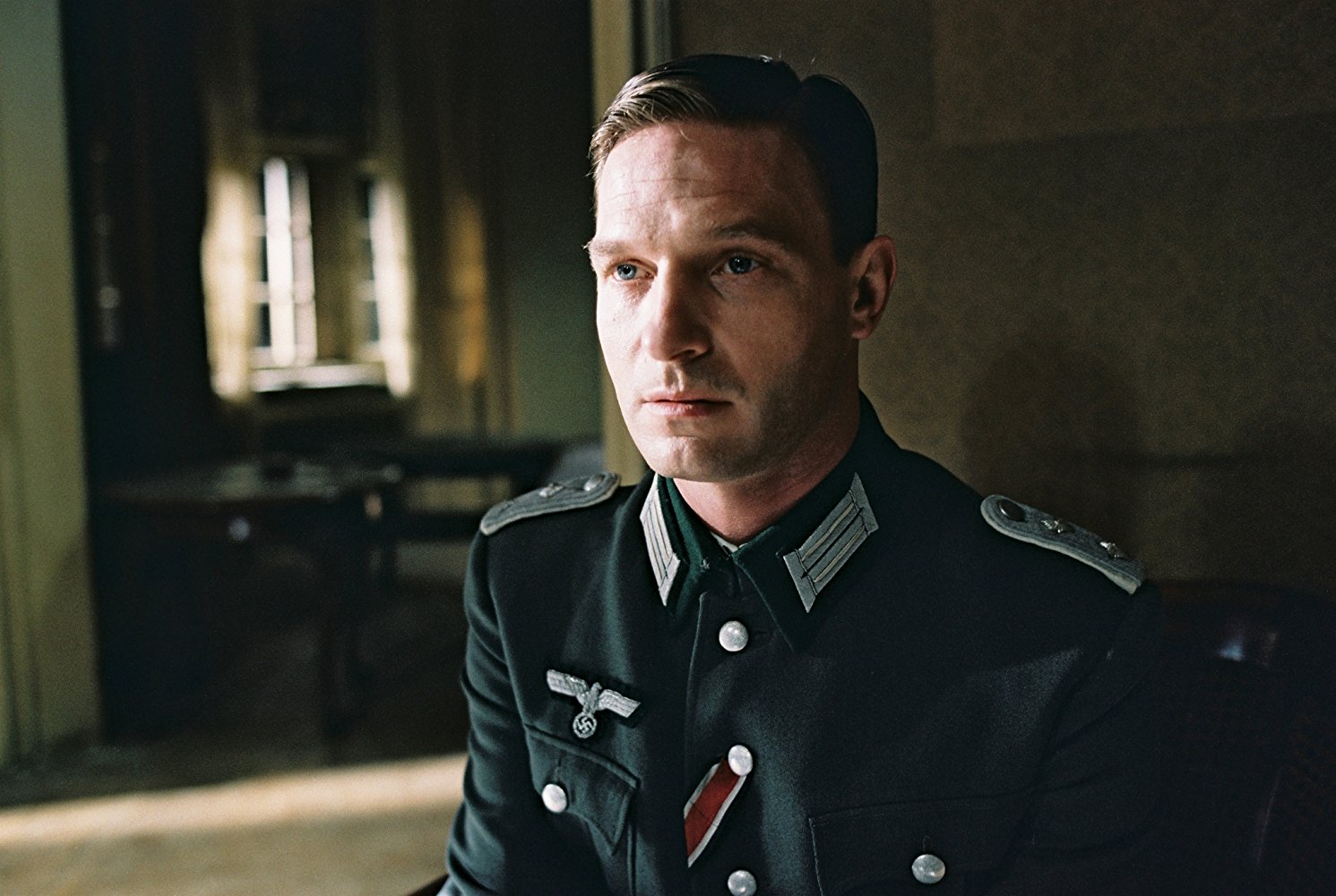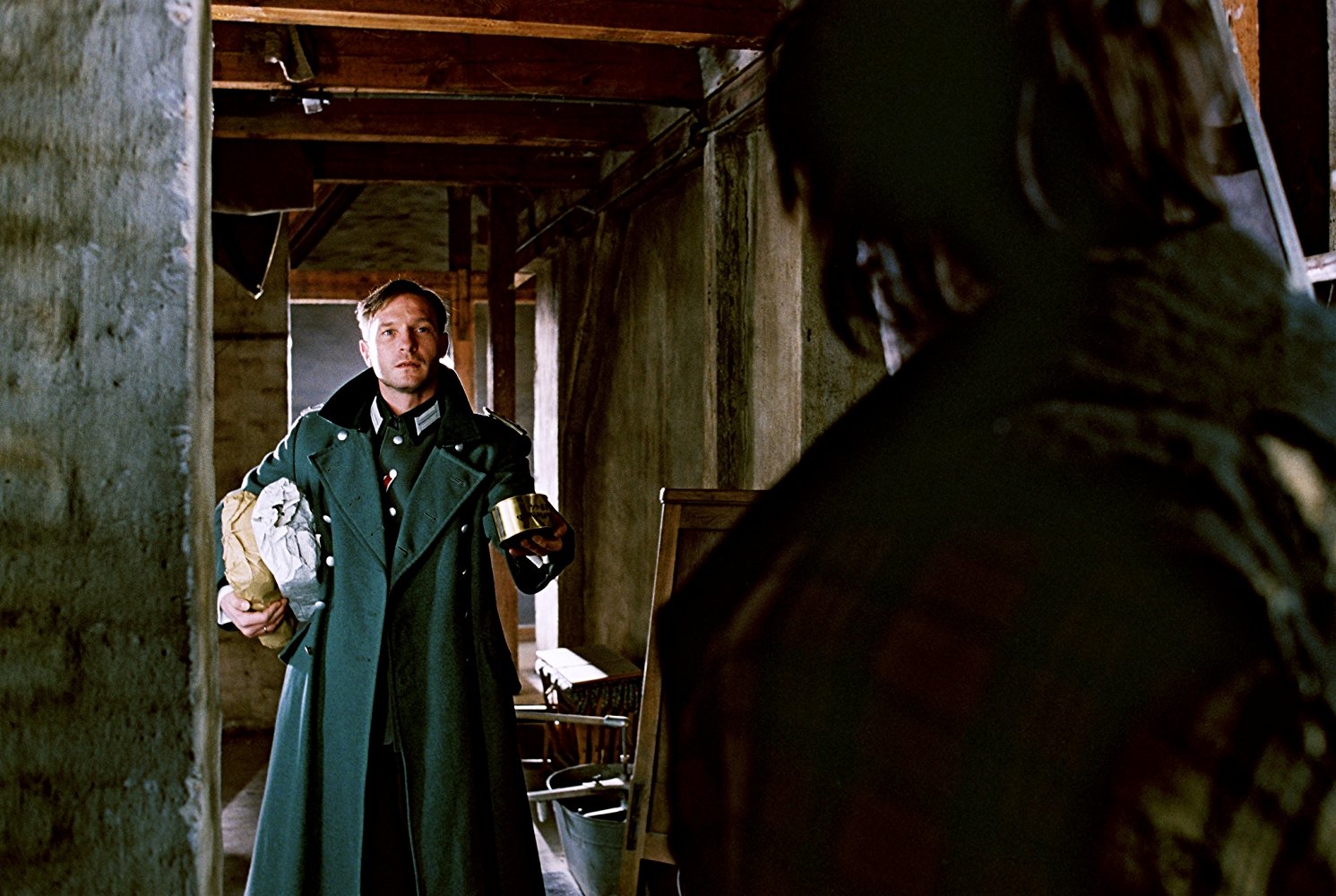The character of Captain Wilm Hosenfeld (played by German actor Thomas Kretschmann) in The Pianist was considered by director Roman Polanski to be the second most important character after that of Wladislaw Szpilman (Adrien Brody). During the final days of the war, Hosenfeld provided Szpilman with food and never gave away his presence. When Hosenfe...
Show more »
The character of Captain Wilm Hosenfeld (played by German actor Thomas Kretschmann) in The Pianist was considered by director Roman Polanski to be the second most important character after that of Wladislaw Szpilman (Adrien Brody). During the final days of the war, Hosenfeld provided Szpilman with food and never gave away his presence. When Hosenfeld's unit is leaving, he provides extra food to Szpilman, and gives him his coat to keep warm. When we next see Hosenfeld, he is with a group of prisoners guarded by Soviets, and is injured, perhaps as the result of a beating. A group of death camp survivors passes by, and several of them taunt the prisoners. One of them is a violinist; Hosenfeld comes up to the fence and asks him if he knows Szpilman. The violinist says yes, and Hosenfeld tells him he helped Szpilman while he was in hiding and begs him to ask Szpilman to help him. Near the end of the film, Szpilman and the violinist return to the spot, but the enclosure and prisoners are long gone.The real Wilm Hosenfeld was a devout Catholic who helped many Jews and Poles during WWII. He joined the Nazi party in 1935, but as a Wehrmacht officer in Poland, he was shocked by the Nazis treatment of the Polish, especially the Jews. He recorded many of his impressions in a diary, excerpts of which can be found in some editions of Szpilman's memoir, the basis of the film. When Hosenfeld was captured by the Nazis, many people pleaded for his release, but were rejected. The Soviet army simply couldn't believe that an officer of his rank hadn't participated in any war atrocities. Hosenfeld was tortured while in captivity, and died in a soviet prisoner of War camp in 1952.Szpilman and others who Hosenfeld assisted during the war related accounts to the World Holocaust Remembrance Center, asking that he be officially recognized. In 2009, after it was determined that he had not committed any atrocities or crimes during the Warsaw uprising, Hosenfeld was officially recognized as Righteous Among the Nations by Yad Vashem.Thomas Kretschmann's understated performance is key to both the character and the film. Some have criticized The Pianist as being cold and matter-of-fact, but for Polanski as a child, that's what life in wartime Warsaw was like. People killed and were killed every day. Children growing up in such an environment have nothing else to compare it to, so that's how they see daily life. That's why Polanski took the same approach in filming Szpilman's story. Indeed, Polanski's approach accuretly reflects the accounts of survivors of the ghettos,With the character of Hosenfeld, as with Szpilman's Polish friends who helped him in hiding, Polanski wanted to show that there were people who simply did the right thing in the same matter-of-fact manner--they did what had to be done, without really thinking about it. Their concept of what is right is so deeply ingrained that they don't even consider not helping. This is most strikingly conveyed in the scene where Hosenfeld discovers Szpilman in hiding. He asks him a few simple questions, then has him play the piano. Hosenfeld's expression as he watches Szpilman play is a complex mixture of awe, sorrow and shame. You don't see the passion in Hosenfeld's diary entries or the warmth and kindness that appears in photos of the real Hosenfeld from that time. There is nothing sentimental in this portrayal. Kretschmann lets Hosenfeld's actions speak for themselves in reflecting a man driven to live by his convictions. The portrait is a striking counterpoint to the the other Nazis in the film, especially when compared to the scene where one Nazi routinely selects a group of ghetto workers (one of them the owner of the ghetto cafe, and Szpilman's friend) , orders them to lie down, and shoots each one in the back of the head.Kretschmann's name deservedly appeared with Brody's above the title of the film, and his brief but very memorable performance inspired a new interest in the real Wilm Hosenfeld. The part won Kretschmann a loyal international following and roles in a broad range of films.
Show less «




